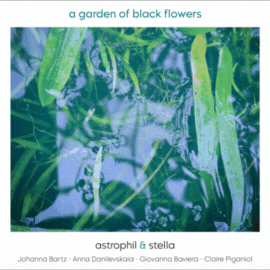Johannes Brahms hatte 1895 dem 10-jährigen Wilhelm Backhaus eine persönliche Widmung mit auf den Karriereweg gegeben: ‘Zum fröhlichen Anfang’ schrieb er auf ein Blatt, das der Pianist später als großen Schatz hütete. Und dass Backhaus einer der bedeutendsten Brahms-Interpreten wurde, wir wohl niemand bestreiten. Drei der fünf CDs dieser Profil-Box mit Einspielungen von 1927-1939 sind daher auch Brahms gewidmet.
Besonders ragt das erste Klavierkonzert von 1932 heraus, von Backhaus sehr kraftvoll und spontan gespielt und von Adrian Boult und dem BBC Symphony ungemein symphonisch und klangintensiv begleitet. Nicht weniger rhetorisch und ausdrucksvoll ist das 2. Brahms-Konzert, 1939 aufgenommen mit der Staatskapelle Dresden unter Karl Böhm. Auch in den Solostücken fasziniert Backhaus mit einem glockigen, immer spontanen, frischen und exaltierten Klang.
Beethovens Klavierkonzerte Nr. 4 und 5 hat Backhaus 1929 mit dem London Symphony unter Landon Ronald aufgenommen. Extreme Klarheit charakterisiert auch hier das Spiel, wohingegen das Orchester etwas blass bleibt. Die subtilen Färbungen und Akzentuierungen sowie das spannende Rubato in den Beethoven-Sonaten ist faszinierend. Wer das nicht gehört hat, dem fehlen wichtige Aspekte in seiner Beethoven-Rezeption, denn so wie Backhaus das vor 90 Jahren tat, spielt kaum jemand anders seinen Beethoven.
In 1895 Johannes Brahms had given the 10-year-old Wilhelm Backhaus a personal dedication for his career: ‘To a cheerful beginning’, he wrote on a sheet of paper that the pianist later guarded as a great treasure. And no one can deny that Backhaus became one of the most important interpreters of Brahms’ music. So it is not astonishing that three of the five CDs in this Profil box set with recordings from 1927-1939 are dedicated to Brahms.
The 1932 First Piano Concerto stands out in particular, played very powerfully and spontaneously by Backhaus, and conducted with immense symphonic and sonorous intensity by Adrian Boult and the BBC Symphony. No less rhetorical and expressive is the 2nd Brahms Concerto, recorded in 1939 with the Staatskapelle Dresden under Karl Böhm. Backhaus also fascinates in the solo pieces with a bell-like sound that is always spontaneous, fresh and exalted.
Backhaus recorded Beethoven’s Piano Concertos Nos. 4 and 5 in 1929 with the London Symphony under Landon Ronald. Extreme clarity characterizes the playing here as well, whereas the orchestra remains somewhat pale. In the Beethoven sonatas the subtle colorations and accentuations as well as the exciting rubato are fascinating. Anyone who has not heard this is missing important aspects in his Beethoven reception, for hardly anyone else plays his Beethoven the way Backhaus did 90 years ago.

























